Elon Musk was an early believer in electric vehicles (EV) before just about anyone else. Other people thought EVs were a good idea to save the environment, but 20 years ago, they were very impractical. You could either make a glorified golf cart for about $10,000 that wouldn't go far or fast or even have air conditioning or windows or you could spend over $100,000 to build a custom car that would go fast, but still be impractical, since there was no charging network.
Elon Musk had made millions of dollars on PayPal and other ventures and he decided to risk it all on Tesla (and SpaceX). He invested money in Tesla (he didn't start the company, but was an early investor) because although he thought the company would likely fail, he felt is was so important to "accelerate the world's transition to sustainable energy" and he had to try anyway, despite the long odds. He added his money and considerable talent at the perfect time. The computer laptop industry had funded the development of lithium ion batteries that were far better than the other technologies used for the last 100 years (lead acid, primarily). The cell phone (smartphone) industry would provide further volume to help lower costs. Elon's vision was that electric cars would be not just competitive, but superior as 2 key trends played out.
- As the volume of batteries produced greatly increased, the costs would drop dramatically. This has played out exactly as he anticipated, with costs falling 87% over the last decade.
- The electric motor is far more efficient than the gas or diesel engine, which wastes about 75% of the fuel on generated unwanted heat, noise and vibration.
Tesla recognized as early as 2013 that battery supply would be insufficient to support large scale production of EVs. Unfortunately, at that time, they didn't have the money to build their own batteries, so they made a deal with the leading battery supplier, Panasonic, to build the largest battery factory in the world! Its goal was to make enough batteries for Tesla's aggressive plans and to make more batteries than the rest of the world's factories combined. It was widely criticized as a boondoggle just to get subsidies. It was thought there would never be enough demand for EVs to utilize its massive capacity. It's been a huge success for Tesla, although less so for Panasonic.
As Tesla has quickly expanded car production in China this year, it has made agreements to purchase batteries from China's battery giant CATL and South Korean giant LG Chem. In addition, Tesla has signed a new long term deal with the Japanese giant Panasonic. Not content to having contracts with the 3 biggest battery manufacturers in the world, speculation is rampant that Tesla has already started to produce its own batteries at its Kato Road facility near its giant Fremont factory, project codenamed "Roadrunner."
Ford's Issue
So the issue that Ford has is they didn't see electric vehicles as important to their future 20 years ago, so they haven't realized until very recently that regardless of regulations and incentives, electric cars and trucks are going to be superior in every meaningful way, including cost in a few years and the industry will be making a huge transition, not unlike the transition from film to digital photos in that industry that caused the bankruptcy of Kodak in 2012.
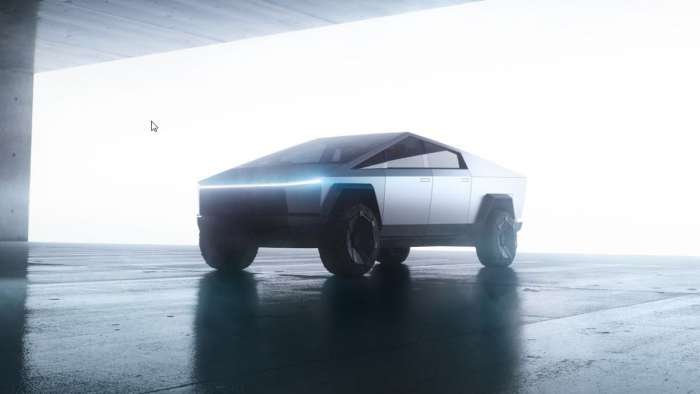
Ford (and Volkswagen) have contracted with SK Innovation last year to supply the batteries for its 2022 Electric F-150. LG Chem has filed a lawsuit seeking to bar SK Innovation from building or importing components to make the cells. Can't Ford just switch suppliers?
Well, if they plan to just make a token number of trucks (like 10,000 a year), I'm sure they can, but since each manufacturer has different specs, they would probably need to delay the product to adjust the design.
My fellow writer Jimmy Dinsmore has written earlier this year that Tesla is "No Threat To The Ford F-150," primarily because Tesla doesn't have the manufacturing capacity to build many trucks. Those that have followed the shockingly fast progress at the Austin Terafactory, being built to make CyberTrucks and Model 3s and Ys, realize the tables are quickly turning. Tesla is preparing to have far more battery capacity than Ford and will quickly increase their vehicle production capacity from about 500,000 this year to about 2 million vehicles in 2022.
Conclusion
It is still an open question if Ford's famously loyal individual customers will buy the shockingly different Tesla CyberTruck, even if its capabilities are vastly superior, but business customers will be forced to investigate the product, since its dramatically lower costs will make them noncompetitive if they don't transition to the new technology as fast as their competitors do.
Ford hoped to offer a great electric pickup (without Tesla's wild styling) to stem the flow to business customers eager to cut fuel and maintenance costs. The legal battle may endanger Ford's plans and leave them without any defense to the Tesla's CyberTruck advance.
Let me know your thoughts please, in the comments section and also see my latest story in which I am discussing "Why I'm Not Buying Tesla Solar Panels or Solar Roof For My House Yet and another story in which I am discussing VW using Tesla Powerpack batteries to power Electrify America DC Fast Chargers.
Paul Fosse is a Software Engineer delivering financial data marts using massively parallel databases (Exadata and GreenPlum) for a major healthcare insurer and a lifelong lover of cars. From the time I saw the 1972 Volkswagen Dasher review in Consumer Reports, I knew the industry would convert to front wheel drive. Now I am excited to have a front row seat to the industry's biggest transition in generations, the transition from gas and diesel cars to electric vehicles. I ordered my first EV (Nissan Leaf) in 2010 and now own a 2018 Tesla Long Range Model 3 and have a Cybertruck and a Model Y on order. Contact me on Twitter at Paul Fosse with tips for new stories. Full disclosure, I'm a Tesla Shareholder.
Set as google preferred source







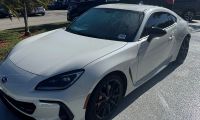
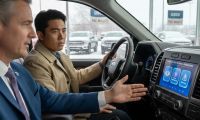
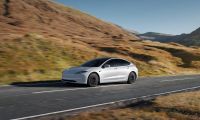
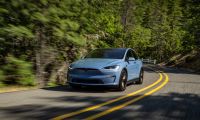

Comments
If you have questions, please
Permalink
If you have questions, please look me up on twitter.
Hi Paul, we just learned that
Permalink
Hi Paul, we just learned that SK Innovation on Thursday lost a compensation lawsuit it filed against LG Chem in Seoul for breaching a patent settlement. What do you think will be the consequences for Ford F-150 Electric?
Off the subject but is Lucid
Permalink
Off the subject but is Lucid affected by the LG Chem battery problem that GM is having ?